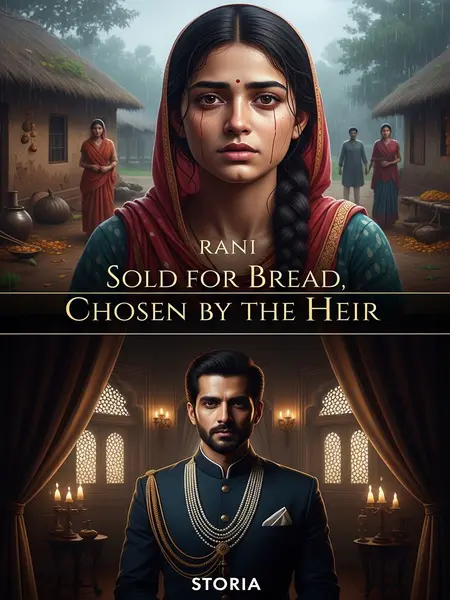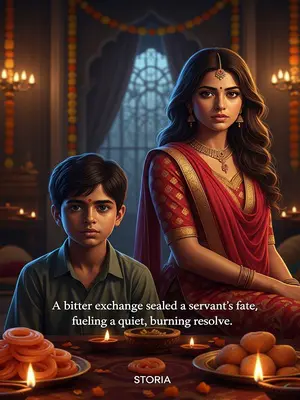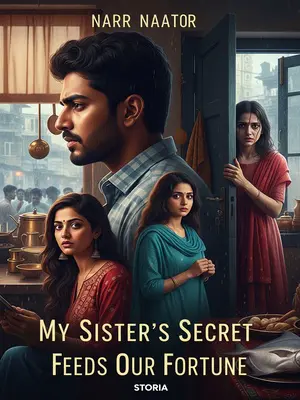Chapter 1: Hunger and Farewell
In the mornings, the kitchen smelled only of wet earth and empty pots. Hunger was a shadow that never left our doorstep. Our family was so poor, even the crows seemed to pity us, cawing over empty fields that yielded little but disappointment. We had only a small patch of dry land, just enough for a kitchen garden, but my father worked it as if each seed were a prayer for our ancestors’ blessings.
Sometimes at dawn, when the crows began their noisy quarrels, I would see him bent low over the ridges, sweat shining on his brow, a streak of vibhuti above his nose. He’d pause to sprinkle water from his lota at the corner of the field, whispering a prayer to the ancestors before stooping again to weed the brinjal saplings. That land was his pride, his legacy, and even when it gave us only a few brinjals, some palak, and a handful of chillies, he tended it as if the gods themselves were watching. But the hunger in our house was stubborn; it clung to the walls, especially during the hot months when the smell of roasted grain from a neighbour’s kitchen would drift across and make our stomachs ache.
My Dadaji and Dadi were old and frail. My three uncles—Chacha ji, Mama ji, and Tau ji—were all grown men, yet still bachelors. Every day, they wandered from one end of Kaveripur to the other, doing little but exchanging gossip and scratching their feet—true idlers, through and through.
Villagers would laugh and say, “Arrey, shaadi ke liye paisa chahiye, bhai! Abhi toh beedi hi sahi.” The three of them would sit under the peepal tree at the chowk, sharing beedis and stories. One would flick the ash and another would tease, “Chal, tu toh gold medalist hai aalas mein.” If someone brought up marriage, they’d wave it off: “Kya karein, bhai, shaadi ke liye paisa chahiye!” Only Dadi scolded them, calling them useless, but still making sure their evening roti was soft and hot.
My little Mausi, the apple of my grandparents’ eye, was the same age as me.
She had mischievous eyes and a laughter that rang through our courtyard. Even Dadaji, with his gruff ways, melted when she clambered into his lap. We were always together—plucking guavas from the neighbour’s tree, racing across the dusty lanes, curling up under a single shawl when the nights turned cold. Mausi’s presence lightened the heaviness in our home; she seemed born to remind us that joy could still be found, even in the smallest corners.
That year, the winter rains were relentless. We had already run out of food for days. With everyone on the verge of starvation, my father left for Mumbai to work as a daily wage labourer. That’s when the traffickers came. They pressed a few thousand rupees into my hand, and I sold myself.
I remember the rain—how it hammered the tiled roof, threatening to bring the whole house down. Rice was gone, atta finished, the masoor dal tin scraped clean. The man from the city came, gold chain glinting, tongue slick with promises. My father looked away, hands trembling. The money was both temptation and curse. I saw my mother’s silent tears, the way she pressed her lips together, and Dadi hid her face in her pallu, her lips moving in silent Hanuman Chalisa. There was no ceremony, no farewell—just a desperate transaction. In our part of Bihar, every family knew someone who had sent a daughter away. The silence was its own kind of scream.









